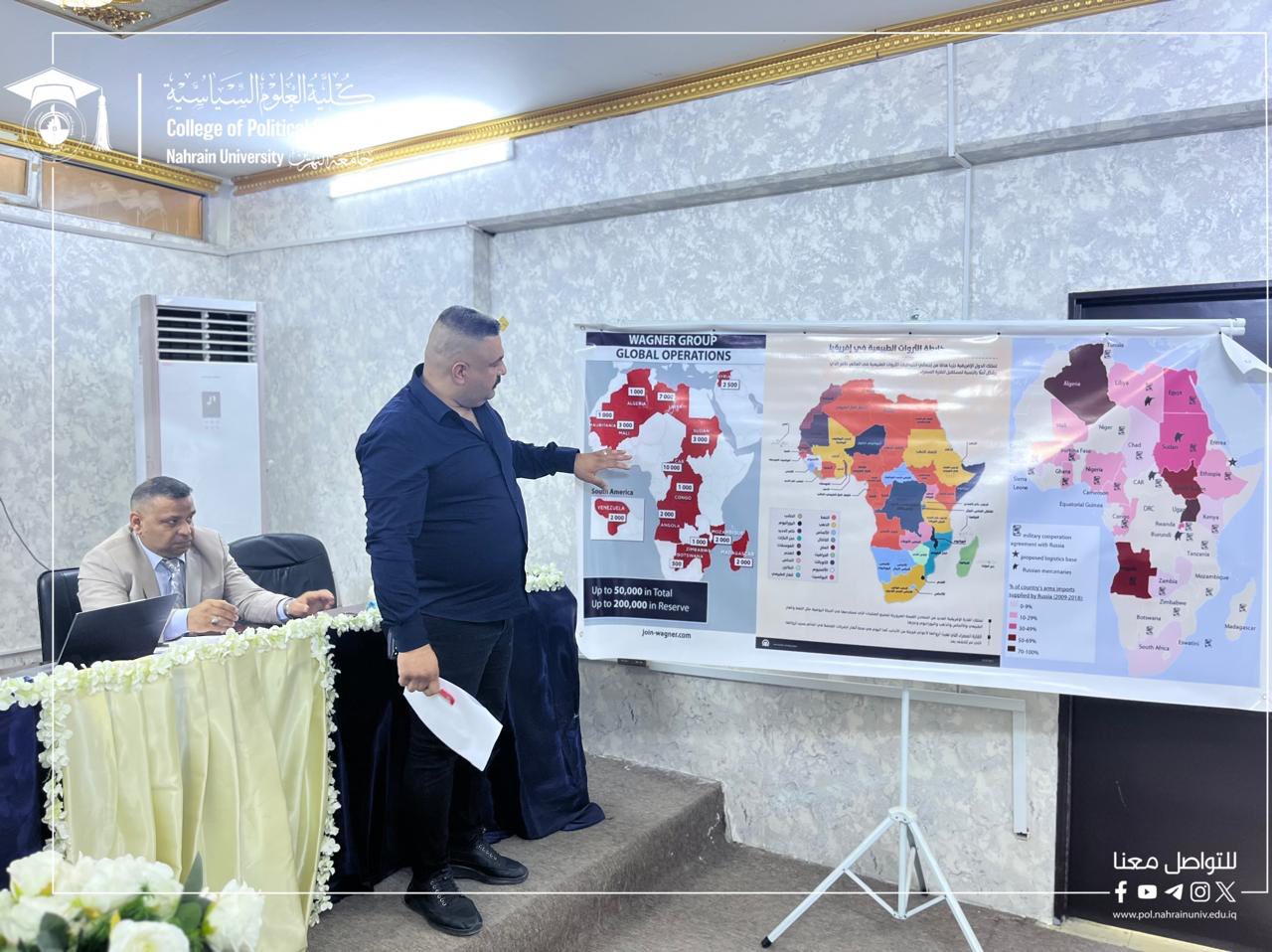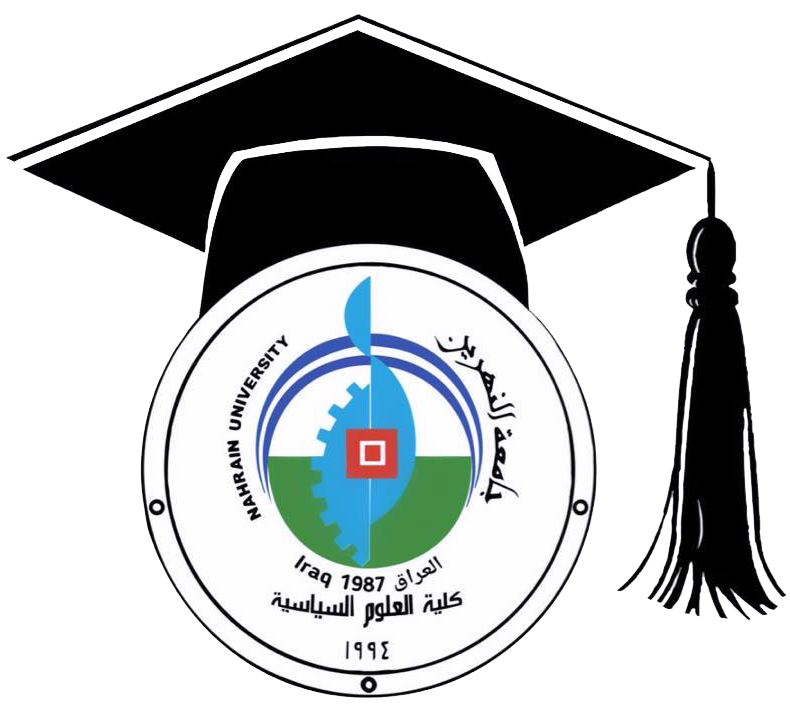A Scientific Symposium Under the Auspices of the Dean of the College of Political Sciences at Al-Nahrain University

A Scientific Symposium Under the Auspices of the Dean of the College of Political Sciences at Al-Nahrain University
Under the auspices of the Dean of the College of Political Sciences at Al-Nahrain University, Professor Dr. Osama Murtada Baqir Al-Saidi, and under the supervision of the Head of the Strategy Department, Professor Dr. Ali Hussein Hamid, the Strategy Department organized a symposium titled “The Use of Mercenaries in Implementing the Objectives of Russian Military Strategy”.
The symposium, which was attended by a group of professors and graduate students, highlighted the increasing role of mercenaries in international conflicts. Professor Dr. Ali Hussein Al-Isaawi stated that the topic of the symposium comes at a time of escalating international conflicts and the growing role of violent actors, including mercenaries.
The symposium shed light on the historical roots of this phenomenon in the military history of ancient empires and the evolution of the role of irregular fighters in implementing military and political tasks outside traditional formal frameworks, up to its modern forms in the 21st century.
The symposium discussed the Russian Wagner Group, its founding circumstances, legal and political nature, financing mechanisms, and the roles assigned to it in implementing combat tasks outside the formal framework of the Russian state, leading up to the group’s disintegration after its rebellion in 2023 and the subsequent repositioning of this tool in light of changes within the Russian system.
The researchers pointed out the role of Wagner in the Russian-Ukrainian war, analyzing its patterns of intervention on the battlefronts, the nature of the tasks it performed, and its field impact on changing the balance of conflict, in addition to its role in gray and hybrid operations outside the framework of international law.
The symposium concluded with several recommendations, most notably:
- The need to expand academic studies on private combat groups.
- Developing national and international legal frameworks to limit the risks of mercenaries.
- Enhancing understanding of unconventional wars, whose tools are spreading in contemporary international conflicts
